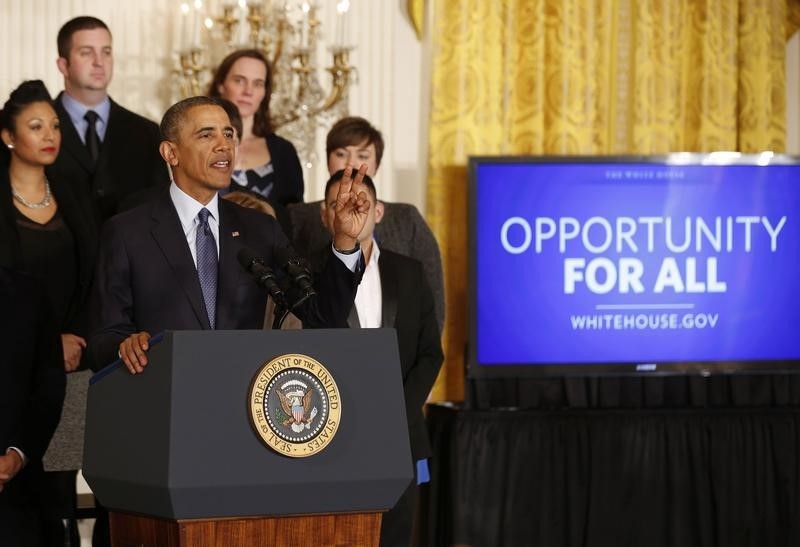By Daniel Wiessner
(Reuters) - With the Obama administration preparing to make millions more Americans eligible for overtime pay, Republicans in Congress have set a hearing for this week to highlight claims by business owners who say the move could kill jobs and spark more lawsuits.
The U.S. Department of Labor last month submitted a draft proposal to raise the annual income cap from the current $23,660 or $455 per week for workers eligible for overtime pay.
Officials did not release details of the proposal, expected to be published later this month. Next year, California and New York are set to raise income thresholds for overtime pay under state laws to $800 and $675 per week, respectively.
Some experts say the federal minimum exempt salary could be raised to $50,000 or higher. The proposal may also address the current exemption of many white collar workers from overtime protections.
A number of Republican lawmakers, including Senate Labor Committee Chair Lamar Alexander of Tennessee, have said expanding overtime protections could hinder job growth.
Republican lawmakers could pass a resolution to block the rules, but they probably lack the votes needed to override a presidential veto, several observers said.
A U.S. House of Representatives panel on Wednesday will hold a hearing on overtime rules. The House Committee on Education and the Workforce will hear testimony from representatives of fast food pioneer White Castle and small businesses.
The National Retail Federation trade group released a study in May that said 3.3 million salaried retail and restaurant employees do not qualify for overtime. Raising the threshold to $42,000 would make 1.7 million more people eligible for overtime pay and cost businesses $5.2 billion a year, the study said.
Lee Schreter, an attorney with the law firm Littler Mendelson who represents employers, said rule changes could enable those 1.7 million or more workers to file lawsuits alleging violations of overtime rules.
"I don't see any good for employers coming out of the anticipated regulations," she said.
The rules could face legal challenges, most likely claiming the Labor Department did not follow steps laid out in federal law to issue new regulations.
Ross Eisenbrey, vice president at the left-leaning Economic Policy Institute who pitched the changes to the White House in 2013, said updating the rules was necessary to reflect changes in the workforce.

"It would provide a better work-family balance for millions of workers, giving some higher pay for working overtime and others reduced hours without any reduction in pay," he said.